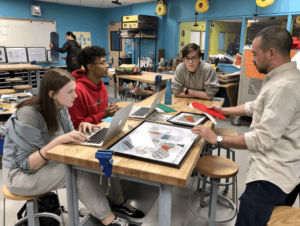5 big questions in American education
I led a Q&A session this morning in NOLA around the big questions in American education. Here’s a summary:
1. Are national standards a good idea? They are the best way to end the race-to-the-bottom and speed development of next gen content and assessment. However, we run the risk of locking in the wrong standards (only slightly better than what we’ve got and more content than performance) as well as the current high school course sequence. We decided that it comes down to the assessments that go along with the standards. Will it be an opening for online and adaptive assessment or a set back?
2. Can we do accountability right? It looks like there’s more support for weaker accountability than a system with real consequences—that would be a disaster for poor kids in America that need a real ‘good school promise’ from their state. We need to reauthorize NCLB with an emphasis on the value that schools add not what kids bring to school—and it will take a push from folks that care about equity.
3. What about school improvement capacity? Big challenge. I called it our Moon Shot in a recent EdWeek interview. Federal grants need to leave room for private providers that can invest in scaled support and quality replacement. Every urban area needs a new school hotbed like the one in NOLA that I wrote about last week.
4. Will we create a performance employment bargain? Probably not. Despite the president’s insistence in employment and compensation based on performance, I don’t see many states/districts making any progress on this front in the next few years. Green Dot’s thin contract is a great model for new employment bargains, but where will the political leadership come from? A price too high for Ds and a battle too ugly for Rs. It will take a generation of new charters and an array of new entrepreneurial options to make a small dent in how we think about education employment.
5. Will stimulus matter? Not as much as it should. The first round of backfill funding has certainly reduced the number of layoffs that would have been necessary, but reduced benefit of some district restructuring. Race to the Top proposals are likely to be disappointing—there won’t be a half a dozen aggressive and innovative state proposals (even with a bunch of $1 million McKinsey written documents) and the state capacity to actually manage big programs is limited. The language of the Innovation Fund significantly limits innovation and will under fund charters (what’s new) but it will scale a few good programs.








0 Comments
Leave a Comment
Your email address will not be published. All fields are required.